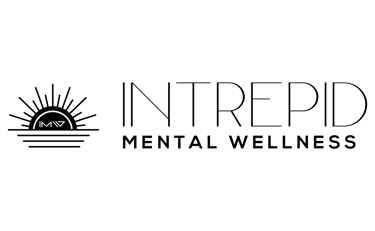Intrepid Mental Wellness: Trusted Holistic PTSD Treatment
Psychiatric Nurse Practitioners Based in Denver and Available Online Throughout Colorado and Arizona
Frequently Asked Questions:
Post-Traumatic Stress Disorder (PTSD)
What Are the Primary Symptoms of PTSD?
The main symptoms include flashbacks, nightmares, severe anxiety, and uncontrollable thoughts about the traumatic event.
How do flashbacks manifest in individuals with PTSD?
Flashbacks are vivid and intense memories of the trauma that make you feel like you’re reliving the experience.
Are there any physical symptoms associated with PTSD?
Yes, physical symptoms can include headaches, dizziness, stomach issues, and increased heart rate.
Can PTSD cause emotional numbness?
Absolutely, many people with PTSD feel detached from their emotions and find it hard to connect with others.
Is hypervigilance a common symptom of PTSD?
Definitely, individuals often feel excessively alert and are always on guard for potential dangers.
Does PTSD affect sleep patterns?
Yes, insomnia and frequent night terrors are common, leading to poor sleep quality.
How does PTSD impact daily functioning?
It can severely interfere with work, relationships, and everyday activities due to overwhelming anxiety and stress.
Are mood swings typical for someone with PTSD?
Frequent and intense mood swings, including irritability and anger, are very common.
Can PTSD lead to memory problems?
Yes, it often results in difficulty recalling details about the traumatic event and other significant memories.
Does PTSD cause avoidance behaviors?
People with PTSD often go out of their way to avoid places, people, and activities that remind them of the trauma.
Is self-destructive behavior a sign of PTSD?
Unfortunately, it can be. Individuals might engage in risky activities or substance abuse as a coping mechanism.
What Are Causes of PTSD?
What traumatic events can lead to PTSD?
Traumatic events like military combat, sexual assault, serious accidents, and natural disasters often trigger PTSD. Any event that causes overwhelming fear, helplessness, or horror can potentially result in this condition.
Can witnessing trauma cause PTSD?
Absolutely. Simply witnessing a traumatic event, such as an accident, violence, or disaster, can be enough to develop PTSD. The emotional impact can be as severe as directly experiencing the event.
How does childhood trauma affect the likelihood of developing PTSD?
Childhood trauma, including abuse, neglect, or witnessing violence, significantly increases the risk of developing PTSD later in life. Early-life trauma can profoundly impact brain development, making individuals more susceptible.
Is PTSD limited to humans experiencing combat?
No, PTSD isn't exclusive to combat veterans, although it's commonly associated with them. It can affect anyone who has experienced or witnessed a traumatic event, regardless of their background or profession.
Can emotional trauma cause PTSD, or does it need to be physical?
Emotional trauma is enough to cause PTSD. Emotional abuse, bullying, and psychological manipulation can be just as damaging as physical trauma, leading to the development of PTSD.
Does genetics play a role in susceptibility to PTSD?
Genetics can influence the likelihood of developing PTSD. Individuals with a family history of anxiety, depression, or PTSD may be more prone to the condition, suggesting a genetic predisposition.
What are some less obvious triggers of PTSD?
Less obvious triggers include sudden loss of a loved one, medical emergencies, a breakup, or even witnessing a traumatic event through media. Triggers vary widely among individuals.
Can repeated exposure to trauma cause PTSD?
Yes, repeated exposure to traumatic events, such as those experienced by first responders, healthcare workers, or social workers, can lead to PTSD. Continuous stress and trauma accumulation increase the risk.
How does PTSD differ from acute stress disorder (ASD)?
ASD occurs immediately after a traumatic event and generally lasts from three days to one month. PTSD symptoms persist longer than a month and may not begin until months or years after the event.
Are certain populations more at risk for PTSD?
Certain populations, like military personnel, emergency responders, and survivors of abuse, are at higher risk. However, PTSD can affect anyone, regardless of age, gender, or profession.
Can untreated PTSD lead to other mental health issues?
Yes, untreated PTSD can result in additional problems such as depression, anxiety, substance abuse, and suicidal thoughts. Early intervention and treatment are crucial.




What Are Medication Treatments for PTSD?
How will I know if I should start a medication?
You'll want to consider medication if PTSD symptoms significantly interfere with your daily life, relationships, and ability to function. Consult with your psychiatric nurse practitioner for a thorough assessment.
How do SSRIs work for PTSD, and what are some examples?
SSRIs, or selective serotonin reuptake inhibitors, help increase serotonin levels in the gut and brain, improving mood and anxiety symptoms. Common SSRIs include Zoloft (sertraline) and Prozac (fluoxetine).
How do SNRIs work for PTSD, and what are some examples?
SNRIs, or serotonin-norepinephrine reuptake inhibitors, enhance both serotonin and norepinephrine levels, addressing both mood and anxiety. Effexor (venlafaxine) is a widely used SNRI for PTSD.
What medications are used to treat nightmares associated with PTSD?
Prazosin is often prescribed to reduce the occurrence and severity of nightmares related to PTSD. It blocks specific receptors that contribute to these vivid, distressing dreams.
How do mood stabilizers like Risperdal and Abilify work?
Mood stabilizers such as Risperdal (risperidone) and Abilify (aripiprazole) help balance mood swings and can be beneficial for those with PTSD who experience severe mood fluctuations.
Are sleep medications ever prescribed for PTSD?
Yes, sleep medications may be prescribed short-term to help with insomnia related to PTSD. Medications like trazodone can assist in achieving better sleep quality.
What's the stance on benzodiazepines for PTSD?
Benzodiazepines are generally prescribed with caution due to their potential for dependency and limited effectiveness on PTSD symptoms. They're usually reserved for short-term use in acute situations.
Is medication alone effective for treating PTSD?
Medication can be a crucial part of treatment. Still, it's often most effective when combined with therapy, such as cognitive-behavioral therapy (CBT) or eye movement desensitization and reprocessing (EMDR).
Are there side effects to these medications?
Yes, side effects vary by medication but can include nausea, dizziness, and sleep disturbances. Always discuss potential side effects with your provider.
How long do medications need to be taken?
The duration varies for each individual. Some may find relief within a few months, while others may need to stay on medication for a more extended period. Regular follow-up with your psychiatric nurse practitioner is essential to evaluate progress and make necessary adjustments.
Are There Natural Treatments for PTSD?
How effective are non-medication treatments for PTSD?
Non-medication treatments can be highly effective for many people. Techniques such as Cognitive Behavioral Therapy (CBT), Eye Movement Desensitization and Reprocessing (EMDR), and mindfulness-based therapies have shown significant benefits. Although Intrepid Mental Wellness does not offer EMDR and CBT, we can refer you to a trusted therapist.
Can exercise help manage PTSD symptoms?
Yes, regular physical activity can reduce stress, anxiety, and depression, which are common in PTSD. Activities like yoga and tai chi are particularly beneficial due to their focus on mindfulness and relaxation.
What role does diet play in managing PTSD?
A balanced diet rich in omega-3 fatty acids, antioxidants, and specific vitamins can support brain health and improve mood. Avoiding excessive caffeine and sugar is also recommended.
How does meditation help with PTSD?
Meditation and mindfulness practices help by calming the mind, reducing stress hormones, and improving emotional regulation. Techniques such as deep breathing and progressive muscle relaxation are beneficial.
Are there any herbal supplements that can help with PTSD?
Certain herbs like kava and chamomile have calming effects. However, it's crucial to consult with your provider before starting any supplements, as they can interact with other medications.
How can social support impact PTSD recovery?
Strong social support networks, including friends, family, and support groups, can provide emotional comfort and understanding, vital for recovery.
What is the role of creative therapies in PTSD treatment?
Creative therapies such as art therapy, music therapy, and writing can provide an outlet for expressing feelings and experiences, aiding in emotional healing.
How can nature therapy benefit those with PTSD?
Spending time in nature, or ecotherapy, can lower stress levels, improve mood, and enhance overall well-being. Activities can include gardening, hiking, or simply spending time outdoors.
Are there any risks to non-medication treatments for PTSD?
While generally safe, some non-medication treatments might not be effective for everyone and could be less structured than traditional therapies. Always consult with your psychiatric nurse practitioner before starting any new treatment.












Find your balance: Unlock our full-spectrum mental health services
Intrepid Mental Wellness tackles mental health by addressing symptoms and root causes. We combine prescribed meds with natural supplements to boost well-being. Our goal is to uncover your core issues and provide a personalized treatment plan just for you.
The latest mental health blog posts
Hours
Monday 7 AM–4:30 PM
Tuesday 7 AM–4:30 PM
Wednesday 7 AM–4:30 PM
Thursday 7 AM–4:30 PM
Friday 7 AM–12 PM
Saturday, Sunday Closed


Providing compassionate holistic mental health care to Colorado and Arizona.
Phone: Colorado & Arizona 719-505-4404
Copyright © 2018-2025 Intrepid Mental Wellness, PLLC. All rights reserved | Privacy Policy | Terms & Conditions


Content on this website is not considered medical advice. Please consult with a licensed health care provider before making any medical or lifestyle changes.
Holistic mind & body supplements & products
Contact |
Shop |
Fax: 720-899-3575